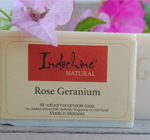TERMS OF SERVICE
The contents on the BruneiONS site are intended for your personal, noncommercial use. All copyright, trade marks, design rights, patents and other intellectual property rights (registered and unregistered) on BruneiONS belong to Bruneions and/or third parties. All materials published here (including but not limited to articles, photographs, images, illustrations also known as the 'Content') are protected by copyright, and owned or controlled by BruneiONS or the party credited as the provider of the Content. Copying, publishing or distribution of any content for use other than personal is prohibited without prior written permission from BruneiONS.
Opinions and views by contributors or interviews with guests are personal views and may not be shared by the BruneiONS.
Personal information revealed through submissions to the Social Calender will be kept confidential except where disclosure is required or permitted by law. BruneiONS will not contact you for marketing purposes, promote news services, activities or online content unless you specifically agree to be contacted for these purposes.
BruneiONS contain hyperlinks to websites owned and operated by third parties. We do not accept any responsibility or liability for the privacy practices of third party websites and your use of such websites is at your own risk.




